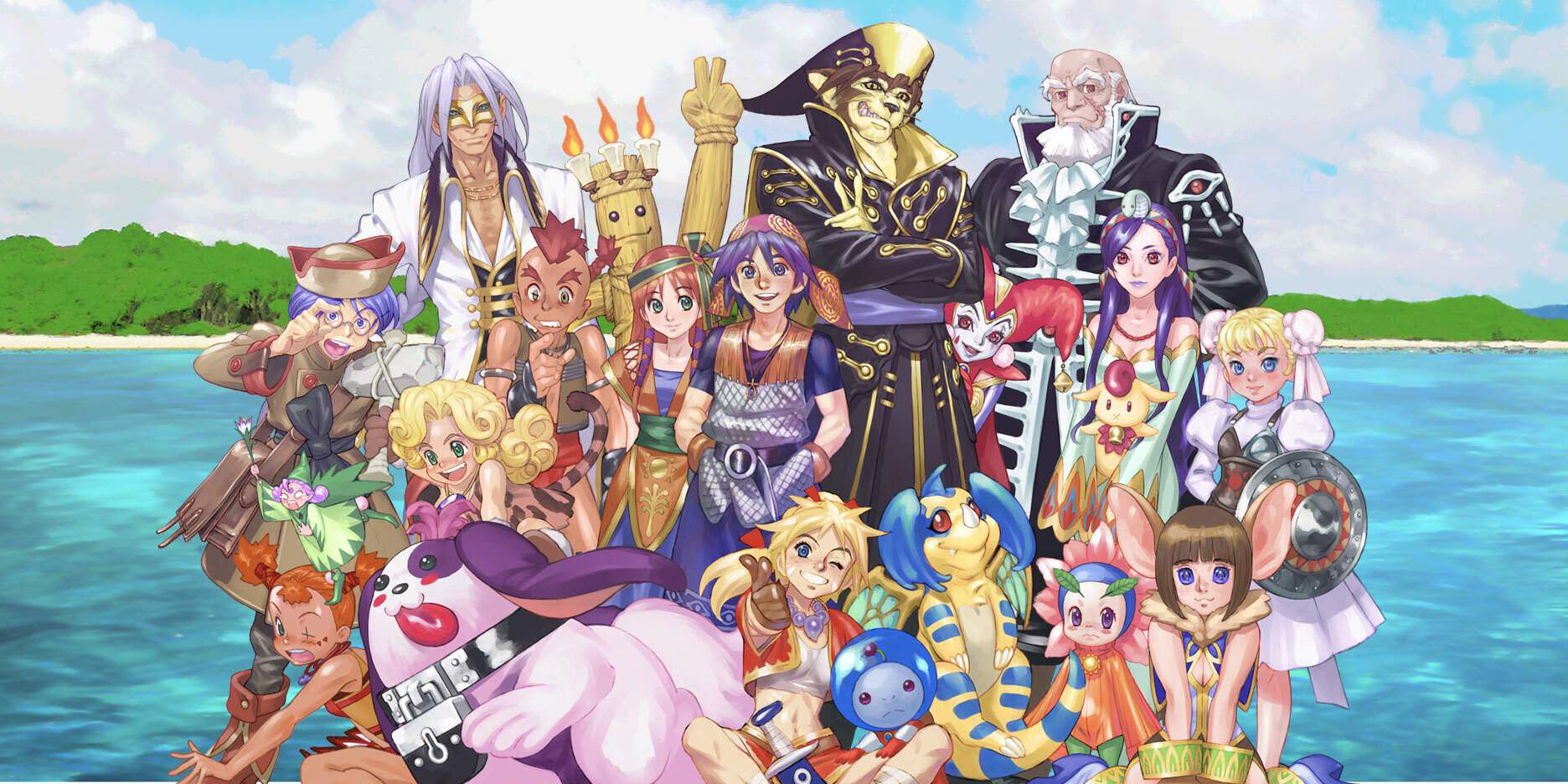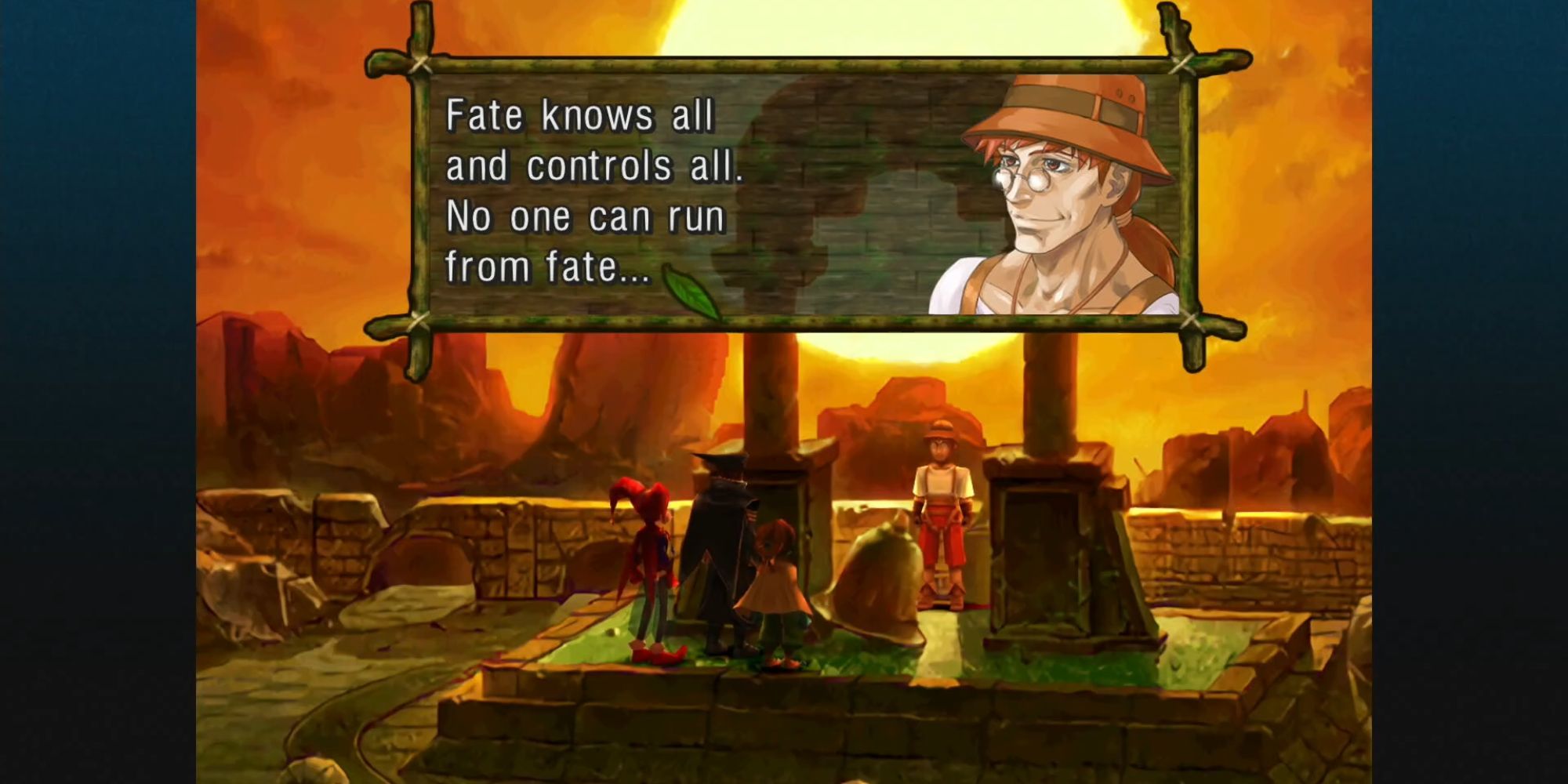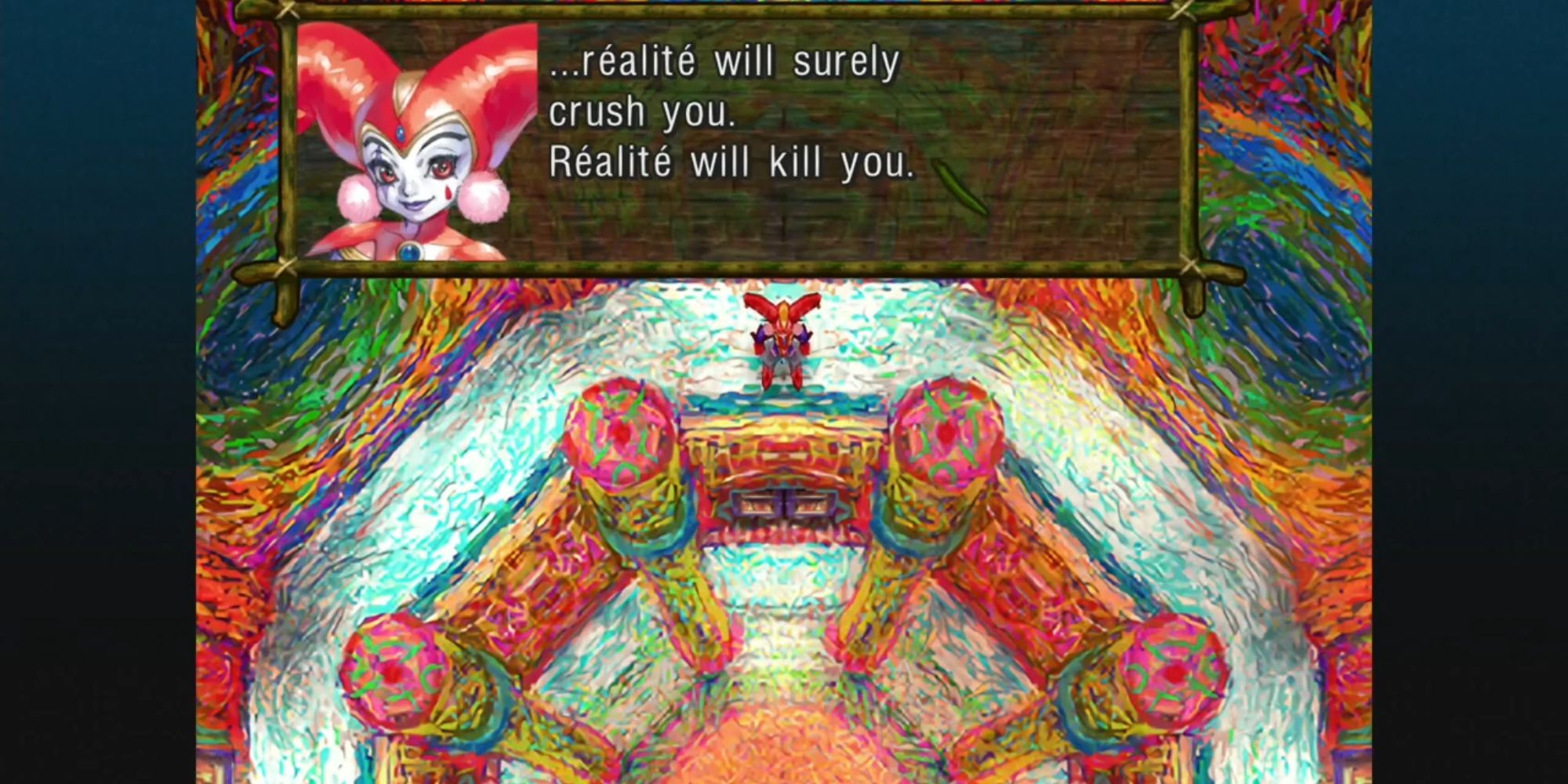SPOILER WARNING: This feature will reveal details about the plots of Chrono Cross and Chrono Trigger.
Chrono Cross’ massive 45-member ensemble cast has been a hot topic since the game's release in 1999, with many arguing that it was too much of an expansion on Chrono Trigger's compact group of seven heroes. But as imperfect as Cross might have been, its large cast was fitting for the story it wanted to say, and helped it achieve a scope that was really kind of profound.
Let's get the criticisms out of the way first. Yes, Chrono Cross doesn’t have its predecessor's excellent Toriyama art style, nor does it employ its quirky humor. The mechanics of both games are worlds apart, and on top of it all, Cross ret-cons Trigger's straightforward save-the-world plot into a convoluted mess about two parallel sci-fi fantasy worlds and autocratic supercomputers, not to mention body-swapping you with your dead father who turned into uh … a giant cat?
So expectations clearly didn't mesh with reality here, but wouldn’t this be fitting for what Chrono Cross' story is about? The reclusive princess Riddel drowns in sorrow over her dead fiancé in one world but finds him alive in the other, and the fairy Razzly’s home is ravaged in one world but thrives in a parallel one. There is a pattern here showing that these are not exactly different worlds, but reflections of the human spirit’s desire to escape from the harsh cold reality into a utopian bliss. That description may ring some bells, as that’s pretty much the same struggle you–the player–face in the story.
As the protagonist Serge, you drift between the two worlds and struggle to change your fate and the fate of those around you. That struggle is depicted symbolically and literally as you are fighting against a supercomputer called Fate which is trying to control the lives of people in all worlds. You–the anomaly that hangs in the balance between worlds–are trying to guide the characters and help them grow some backbone by showing them that a different fate is indeed possible, and teaching them how to move on with their lives beyond what was already decided for them.
That said, it’s not as easy as it sounds. Each character struggles against their circumstances in their own unique way. There's the aforesaid sadness of a sheltered princess like Riddel over the loss of her fiancé, or the emotive singing of the musician Nikki who tries to reclaim his identity after being separated from his family. Here we have two drastically different ways of expressing how people come to terms with the whims of fate, but the game’s point of view would be hardly convincing if portrayed only through the eyes of a few characters who share common backgrounds or values.
A diverse cast with multiple perspectives is appropriate for a subject as vast as fate's inevitability, which has been the center of many philosophical, scientific, and religious discussions for centuries now. The world of the game establishes this by introducing a tropical archipelago filled with vibrant life and culture, where inhabitants come from all walks of life, including researchers, shamans, mermaids, musicians, warriors, demi-humans, and even mythical beings like voodoo dolls and dragons, each with their own personal struggles, beliefs, and special dialects. The antagonist jester Harle's Franglais, or the researcher Luccia’s Transylvanian accent might be just the whims of the translators, but they still add a great sense of diversity to the story.
A universal struggle depicted through this cast wouldn't be as meaningful if the characters weren't playable. The people you meet must actively participate in deciding their own fates, otherwise it would be as though you are deciding the fate of all the world by yourself, which is no different from the Fate supercomputer and its arbitrary decisions. That's why I admire how each character voices their perspectives during every main story scene, depending on whom you choose for your active party; some might even abandon you if you take decisions against their moral compass, like Korcha disagreeing with you abandoning the heroine Kid, or Harle's cynical attitude leading her to give up on going against fate altogether.
I can already hear those of you in the back asking about what possible relevance could be ascribed to Mojo the doll or Poshul the chubby dog, thinking these two are surely nothing but the most irrelevant characters in JRPG history. Well, some cultures, such as Japan with its Shinto religion, believe in animism - the idea that the soul exists in all living things and phenomena. In fact, temples across Japan hold a "Ningyo Kuyo" (人形供養), a funeral ritual for unwanted dolls to thank them for their service and send them properly to the afterlife, so even their quirky presence adds some food for thought to the main theme of fate governing all and everything.
Chrono Trigger tells the story of heroes who could bend history and reality to their will, but Cross complements it by telling the story of how reality wasn't as kind to everyone else, giving us a vast cast who need to muster up the reason to keep going forward even in the face of a fate they never wished for, or weren't strong enough to accept.



